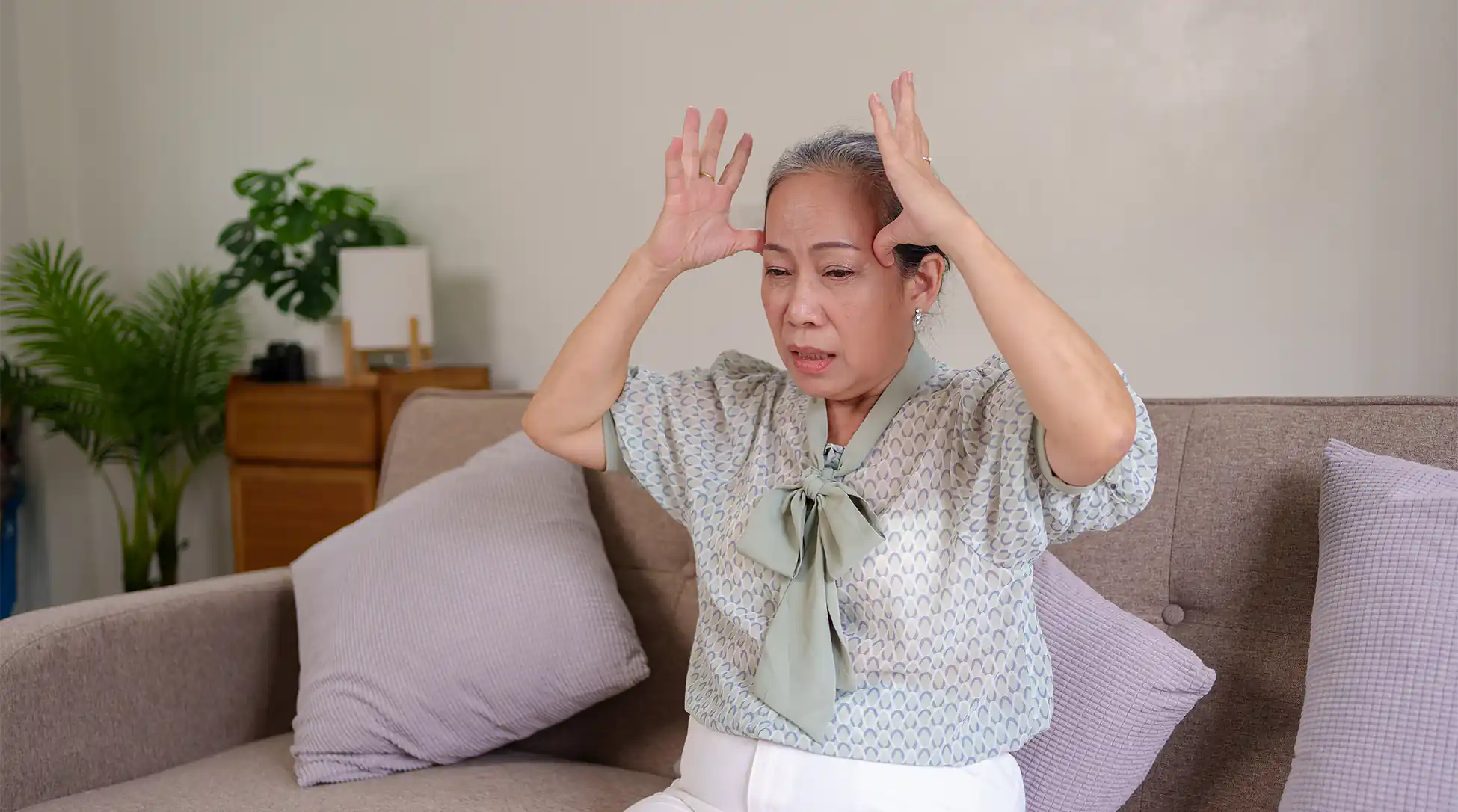Dizziness and Menopause: Finding Balance in a New Chapter
Ah, menopause. A time of change, of transition, and often, of dizziness. As women embark on this new chapter of life, it’s not uncommon to experience feelings of lightheadedness and imbalance. But fear not, dear reader, for we are here to shed light on this dizzying topic and help you find your footing in the midst of hormonal fluctuations.
First and foremost, let’s demystify this whole concept of dizziness during menopause. It’s important to understand that hormonal changes play a significant role in causing this unsettling sensation. As oestrogen levels decline, the delicate balance within our bodies gets a little wonky, affecting various systems, including the inner ear, which is responsible for our sense of balance.

Dizziness Tips
So, what can you do when the room starts spinning and you find yourself grasping for stability? Here are a few tips to help you navigate through the dizziness:
- Take it slow: When you feel a bout of dizziness coming on, it’s important to pause, take a deep breath, and slow down. Rushing around or sudden movements can exacerbate the sensation. Embrace the art of slowing down and give your body the time it needs to adjust.
- Hydrate, hydrate, hydrate: Dehydration can worsen dizziness, so it’s crucial to keep yourself well-hydrated throughout the day. Sip on water, herbal teas, or refreshing fruit-infused beverages to ensure your body stays properly hydrated.
- Mindful movement: Engaging in regular exercise can help improve balance and reduce the frequency of dizzy spells. Opt for gentle exercises like yoga or tai chi, which focus on body awareness, flexibility, and stability. These practices not only strengthen your body but also promote mindfulness and inner calm.
- Nourish your body: A well-balanced diet can make a world of difference when it comes to managing menopausal symptoms. Include foods rich in vitamins and minerals, such as leafy greens, whole grains, and lean proteins. Avoid triggers like caffeine, alcohol, and spicy foods, which can contribute to dizziness.
- Seek support: Remember, you don’t have to navigate this journey alone. Reach out to your healthcare provider or a trusted menopause support group to discuss your symptoms and explore potential treatment options. Sometimes, simply talking to someone who understands can provide immense relief.
While dizziness during menopause can be bothersome, it’s essential to remember that it is often a temporary phase. As your body adjusts to the hormonal changes, the dizzy spells tend to subside. In the meantime, embrace this period of transformation as an opportunity for self-care and self-discovery.
Menopause is a natural part of a woman’s life, and dizziness is just one of the many twists and turns along the way. If you have tried some of the above, and haven’t got the results you were hoping for, MenoBliss could help you. With 38 natural active ingredients to help improve hormonal balance, MenoBliss helps reduce aches and pains, hot flashes, mood swings, insomnia, brain fog, and lack of desire.
So, take a deep breath, find your balance, and embark on this new chapter with grace and a sense of adventure. You’ve got this, and we’re here to support you every step of the way.



